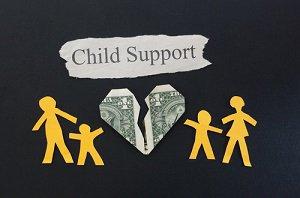Recent Blog Posts
Preparing for a Parental Responsibilities Evaluation
Posted on February 10, 2016 in Paternity
 When parents are unable to agree on the allocation of parental responsibilities or on a parenting time schedule, judges will often appoint an evaluator to study the situation and make recommendations. Often judges will adopt most, or even all, of the recommendations of the selected evaluator. Therefore, you need to understand how such an evaluation works.
When parents are unable to agree on the allocation of parental responsibilities or on a parenting time schedule, judges will often appoint an evaluator to study the situation and make recommendations. Often judges will adopt most, or even all, of the recommendations of the selected evaluator. Therefore, you need to understand how such an evaluation works.
Appointing the Evaluator
Judges have the discretion to appoint a custody or parental responsibilities evaluator when deemed to be necessary based on the circumstances of a particular case. Some judges will simply appoint an evaluator from a court-approved list. Other times, a judge will provide the parties a few names and ask them to agree on an evaluator. Many, if not most, evaluators are psychologists or other qualified mental health professionals.
What Happens in an Evaluation
Continue Reading ››
How Long Will My Divorce Take?
Posted on February 08, 2016 in Divorce
 If you are considering a divorce, there are probably countless questions going through your head. Ending a marriage will, in almost every situation, create a degree of uncertainty. You may be unsure of how you will get by on your own, how co-parenting will work, and whether you will ever be ready to give love another chance. In addition, you are also likely to have concerns about the process itself. Unfortunately, one of the most common questions is one that is among the most difficult to answer definitively. How long will it take to complete a divorce? It is almost impossible to say for sure.
If you are considering a divorce, there are probably countless questions going through your head. Ending a marriage will, in almost every situation, create a degree of uncertainty. You may be unsure of how you will get by on your own, how co-parenting will work, and whether you will ever be ready to give love another chance. In addition, you are also likely to have concerns about the process itself. Unfortunately, one of the most common questions is one that is among the most difficult to answer definitively. How long will it take to complete a divorce? It is almost impossible to say for sure.
Contributing Factors
The speed and efficiency of the divorce process depend on a wide range of variables, some related to your specific situation while others are beyond your control. For example, the current caseload in the county where you file your divorce petition can impact your case by several weeks or more, but you and your spouse can do little, if anything, about the court’s schedule.
Continue Reading ››
Five Ways You May Be Hurting Your Family Law Case
Posted on February 01, 2016 in Family Law
 Everyone wants what is best for his or her children. But sometimes people end up damaging their children and hurting their own case when they are in a parental responsibilities (custody) or parenting time dispute without even realizing it. If you are engaging in any of these five behaviors, you need to reexamine your approach.
Everyone wants what is best for his or her children. But sometimes people end up damaging their children and hurting their own case when they are in a parental responsibilities (custody) or parenting time dispute without even realizing it. If you are engaging in any of these five behaviors, you need to reexamine your approach.
1. Talking About the Case in Front of Your Child
Any dispute you are having is with another adult. When you discuss the case and your feelings about it in front of your child, you risk making the child feel like they are in the middle of the battle. The child may feel like they have to pick a parent or a particular side. If a custody evaluator or judge sees you putting your child in the middle of the dispute, you could seriously hurt any chance at getting what you want in the case.
2. Refusing to be Flexible
Life is busy and hectic for everyone and everything will not always go according to plan. If you refuse to be flexible occasionally when something goes wrong, a court may not see you as taking a principled stand for following the rules. Judges will think you are putting your own ego above what is best for your child.
Continue Reading ››
What Does a Prenuptial Agreement NOT Cover?
Posted on January 31, 2016 in Prenuptial and Postnuptial Agreements
 Discussing a prenuptial agreement with your soon-to-be spouse is never easy. However, as thousands of divorcees will attest, this contract can protect your personal and financial interests. Although a prenup can protect certain assets, the contract does have limits. Some aspects in a divorce or family law case cannot be part of a prenuptial agreement.
Discussing a prenuptial agreement with your soon-to-be spouse is never easy. However, as thousands of divorcees will attest, this contract can protect your personal and financial interests. Although a prenup can protect certain assets, the contract does have limits. Some aspects in a divorce or family law case cannot be part of a prenuptial agreement.
Illegal Terms
According to Illinois law, you may not include any illegal obligations in your prenuptial agreement. These can range from requiring your spouse to commit an unlawful act to listing the division of prohibited possessions, such as drugs. These terms may render the entire document invalid.
Child Support and Allocation of Parental Responsibilities
In Illinois, the court has the final say in calculating child support. Therefore, you cannot include details regarding child support or child custody in a prenuptial agreement.
Continue Reading ››
Cooperating With a Guardian ad Litem
Posted on January 27, 2016 in Guardian ad Litem
 It is all too familiar to most people that legal proceedings related to children can quickly deteriorate into ugly, contentious battles. Although it can happen for many reasons, unfortunately, it occurs most often when parents cannot separate themselves from the emotion of the situation, allowing their feelings for each other to cloud their judgment regarding the child’s best interests. Despite recent changes to the statute in Illinois regarding child custody—now called the allocation of parental responsibilities—there is no way to entirely prevent acrimonious disputes. To help the process, however, a family court has the authority under law to appoint a guardian ad litem, an attorney who serves as an extension of the court.
It is all too familiar to most people that legal proceedings related to children can quickly deteriorate into ugly, contentious battles. Although it can happen for many reasons, unfortunately, it occurs most often when parents cannot separate themselves from the emotion of the situation, allowing their feelings for each other to cloud their judgment regarding the child’s best interests. Despite recent changes to the statute in Illinois regarding child custody—now called the allocation of parental responsibilities—there is no way to entirely prevent acrimonious disputes. To help the process, however, a family court has the authority under law to appoint a guardian ad litem, an attorney who serves as an extension of the court.
The Guardian ad Litem’s Duties
According to the Illinois Marriage and Dissolution of Marriage Act, a guardian ad litem (GAL) must be an appropriately trained and certified attorney, who is appointed to assist the court in understanding the circumstance relevant to a child-related legal matter. A GAL may be asked to help in the allocation of parental responsibilities, proceedings for parenting time disputes, relocations, and any other matter in which the child’s best interest are of primary concern.
Continue Reading ››
What is a Parental Relocation?
Posted on January 20, 2016 in Child Custody and Support
 As you try to provide for your children, it is important to stay aware of any and all potential opportunities that may arise. Sometimes, these opportunities may require you to move out of the area, and in some cases, to a different state. When children are not a consideration, it is relatively easy to pick up and move, and start a life in a new location. When a custody order—or a parenting plan under the updated law—is involved, you will need to understand what the law requires before you attempt a relocation.
As you try to provide for your children, it is important to stay aware of any and all potential opportunities that may arise. Sometimes, these opportunities may require you to move out of the area, and in some cases, to a different state. When children are not a consideration, it is relatively easy to pick up and move, and start a life in a new location. When a custody order—or a parenting plan under the updated law—is involved, you will need to understand what the law requires before you attempt a relocation.
Relocation Defined
The same measure that updated the state’s provisions on child custody also clarified what constitutes a relocation. Under the previous version of the law, only an out-of-state move required special consideration. Beginning this year, however, the updated statute provides direction on what a parental relocation is and the steps necessary in completing one.
Continue Reading ››
Mediation Allows You to Express Yourself
Posted on January 18, 2016 in Mediation
 As form of dispute resolution that is available in virtually every type of civil proceeding, mediation typically allows competing parties the opportunity to hammer out an agreement that reasonably meets the needs of everyone involved. This holds true in a large number of arenas, including personal injury concerns, business disputes, and, of course, divorce and family law. Perhaps the biggest advantage to seeking mediation in your divorce or child-related matter your ability to be clearly heard throughout the process, a luxury not necessarily afforded in many court-handled cases.
As form of dispute resolution that is available in virtually every type of civil proceeding, mediation typically allows competing parties the opportunity to hammer out an agreement that reasonably meets the needs of everyone involved. This holds true in a large number of arenas, including personal injury concerns, business disputes, and, of course, divorce and family law. Perhaps the biggest advantage to seeking mediation in your divorce or child-related matter your ability to be clearly heard throughout the process, a luxury not necessarily afforded in many court-handled cases.
Strict Legal Guidelines
While the statutes regarding divorce and family law are constantly being updated to allow for more individual consideration, the fact of the matter is that a court can only do so much. A presiding judge is expected to take into account an ever-growing list of circumstantial considerations, which may include those related to each spouse and the children involved. To truly appreciate a family’s situation, a judge would need to review the case for hours and hours, discussing intimate details with each party, and doing so is clearly not a realistic expectation. Thus, court decisions are often based on a very limited understanding of the facts, and only those each party remembers to include in presented documents.
Continue Reading ››
Understanding the Illinois Child Support Law
Posted on January 13, 2016 in Child Custody and Support
 If you are a divorced, separated, or unmarried parent, you may be aware that many of the laws regarding child custody and parental visitation have been changed in Illinois beginning this year. To the surprise of some around the state, however, the statutes regarding child support have yet to be updated. This means that the guidelines that have been in place for a number of years will remain in effect for the foreseeable future.
If you are a divorced, separated, or unmarried parent, you may be aware that many of the laws regarding child custody and parental visitation have been changed in Illinois beginning this year. To the surprise of some around the state, however, the statutes regarding child support have yet to be updated. This means that the guidelines that have been in place for a number of years will remain in effect for the foreseeable future.
Who Pays Support?
According to the Illinois Marriage and Dissolution of Marriage Act, either or both parents may be required to contribute toward the financial support of their child. These payments are intended to help provide for the child’s most basic needs, including shelter, food, clothing, and day-to-day needs. In practice, however, if you are a parent who has not been granted the majority of the parenting time with your child, you will likely be ordered to make support payments.
Continue Reading ››
Begin Discussing Your Parenting Responsibilities
Posted on January 11, 2016 in Child Custody and Support
 When it becomes evident that you are headed for divorce, it is important to start planning for the process. You will need to have a good understanding of your current financial situation and what constitutes your ideal post-divorce scenario. Depending upon the circumstances of your relationship with your spouse, you may be able begin negotiating the terms of your divorce agreement. At first, of course, such discussions would need to be relatively informal, but you and your spouse can at least start talking about the future. The conversation is even more important if you have a child or children together, so that you can both better understand the role you are to play in your child’s upbringing.
When it becomes evident that you are headed for divorce, it is important to start planning for the process. You will need to have a good understanding of your current financial situation and what constitutes your ideal post-divorce scenario. Depending upon the circumstances of your relationship with your spouse, you may be able begin negotiating the terms of your divorce agreement. At first, of course, such discussions would need to be relatively informal, but you and your spouse can at least start talking about the future. The conversation is even more important if you have a child or children together, so that you can both better understand the role you are to play in your child’s upbringing.
Determine a Primary Residence
Among your first child-related concerns should be which parent will assume responsibility for a majority of the parenting time. This is an important consideration in determining where the child will attend school. The parent who does not have the majority of the parenting time will most likely be responsible for paying child support. Just because one of you has less parenting time than the other is not considered to be a reflection on your parental rights; rather it is more of a logistical determination.
Continue Reading ››
Life Insurance as Security in a Divorce Case
Posted on January 08, 2016 in Spousal Maintenance
 For many individuals, it takes a divorce to highlight just how financially dependent a person may be on his or her spouse. This, of course, may be all the more true if you are also trying to raise children. It is for exactly such reasons that the divorce laws in Illinois include provisions for spousal maintenance and child support. These orders are issued, when appropriate, by the court to distribute the financial burden more equitably between you and your ex-spouse. But, what would happen if your ex-spouse was no longer around to provide support for you or your children? Would you be able to get by? If the answer is no, you may want to speak with family law attorney about including life insurance requirements in your divorce agreement.
For many individuals, it takes a divorce to highlight just how financially dependent a person may be on his or her spouse. This, of course, may be all the more true if you are also trying to raise children. It is for exactly such reasons that the divorce laws in Illinois include provisions for spousal maintenance and child support. These orders are issued, when appropriate, by the court to distribute the financial burden more equitably between you and your ex-spouse. But, what would happen if your ex-spouse was no longer around to provide support for you or your children? Would you be able to get by? If the answer is no, you may want to speak with family law attorney about including life insurance requirements in your divorce agreement.
Why Life Insurance?
A life insurance policy is designed to pay financial benefits to the named beneficiaries of a policyholder upon the policyholder’s death. These funds are often used to cover funeral costs, pay down debts, or to simply maintain a similar lifestyle. Married individuals will commonly name their spouse as the primary beneficiary to help provide a level of security in the event of their death.
Continue Reading ››







 When parents are unable to agree on the allocation of
When parents are unable to agree on the allocation of  If you are considering a
If you are considering a  Everyone wants what is best for his or her children. But sometimes people end up damaging their children and hurting their own case when they are in a parental responsibilities (custody) or parenting time dispute without even realizing it. If you are engaging in any of these five behaviors, you need to reexamine your approach.
Everyone wants what is best for his or her children. But sometimes people end up damaging their children and hurting their own case when they are in a parental responsibilities (custody) or parenting time dispute without even realizing it. If you are engaging in any of these five behaviors, you need to reexamine your approach. Discussing a
Discussing a  It is all too familiar to most people that legal proceedings related to children can quickly deteriorate into ugly, contentious battles. Although it can happen for many reasons, unfortunately, it occurs most often when parents cannot separate themselves from the emotion of the situation, allowing their feelings for each other to cloud their judgment regarding the child’s best interests. Despite recent changes to the statute in Illinois regarding child custody—now called the allocation of parental responsibilities—there is no way to entirely prevent acrimonious disputes. To help the process, however, a family court has the authority under law to appoint a
It is all too familiar to most people that legal proceedings related to children can quickly deteriorate into ugly, contentious battles. Although it can happen for many reasons, unfortunately, it occurs most often when parents cannot separate themselves from the emotion of the situation, allowing their feelings for each other to cloud their judgment regarding the child’s best interests. Despite recent changes to the statute in Illinois regarding child custody—now called the allocation of parental responsibilities—there is no way to entirely prevent acrimonious disputes. To help the process, however, a family court has the authority under law to appoint a  As you try to provide for your children, it is important to stay aware of any and all potential opportunities that may arise. Sometimes, these opportunities may require you to move out of the area, and in some cases, to a different state. When children are not a consideration, it is relatively easy to pick up and move, and start a life in a new location. When a
As you try to provide for your children, it is important to stay aware of any and all potential opportunities that may arise. Sometimes, these opportunities may require you to move out of the area, and in some cases, to a different state. When children are not a consideration, it is relatively easy to pick up and move, and start a life in a new location. When a  As form of dispute resolution that is available in virtually every type of civil proceeding, mediation typically allows competing parties the opportunity to hammer out an agreement that reasonably meets the needs of everyone involved. This holds true in a large number of arenas, including personal injury concerns, business disputes, and, of course,
As form of dispute resolution that is available in virtually every type of civil proceeding, mediation typically allows competing parties the opportunity to hammer out an agreement that reasonably meets the needs of everyone involved. This holds true in a large number of arenas, including personal injury concerns, business disputes, and, of course,  If you are a divorced, separated, or unmarried parent, you may be aware that many of the laws regarding child custody and parental visitation have been changed in Illinois beginning this year. To the surprise of some around the state, however, the statutes regarding
If you are a divorced, separated, or unmarried parent, you may be aware that many of the laws regarding child custody and parental visitation have been changed in Illinois beginning this year. To the surprise of some around the state, however, the statutes regarding  When it becomes evident that you are headed for divorce, it is important to start planning for the process. You will need to have a good understanding of your current financial situation and what constitutes your ideal post-divorce scenario. Depending upon the circumstances of your relationship with your spouse, you may be able begin negotiating the terms of your divorce agreement. At first, of course, such discussions would need to be relatively informal, but you and your spouse can at least start talking about the future. The conversation is even more important if you have a child or children together, so that you can both better understand
When it becomes evident that you are headed for divorce, it is important to start planning for the process. You will need to have a good understanding of your current financial situation and what constitutes your ideal post-divorce scenario. Depending upon the circumstances of your relationship with your spouse, you may be able begin negotiating the terms of your divorce agreement. At first, of course, such discussions would need to be relatively informal, but you and your spouse can at least start talking about the future. The conversation is even more important if you have a child or children together, so that you can both better understand  For many individuals, it takes a divorce to highlight just how financially dependent a person may be on his or her spouse. This, of course, may be all the more true if you are also trying to raise children. It is for exactly such reasons that the divorce laws in Illinois include provisions for spousal maintenance and
For many individuals, it takes a divorce to highlight just how financially dependent a person may be on his or her spouse. This, of course, may be all the more true if you are also trying to raise children. It is for exactly such reasons that the divorce laws in Illinois include provisions for spousal maintenance and 